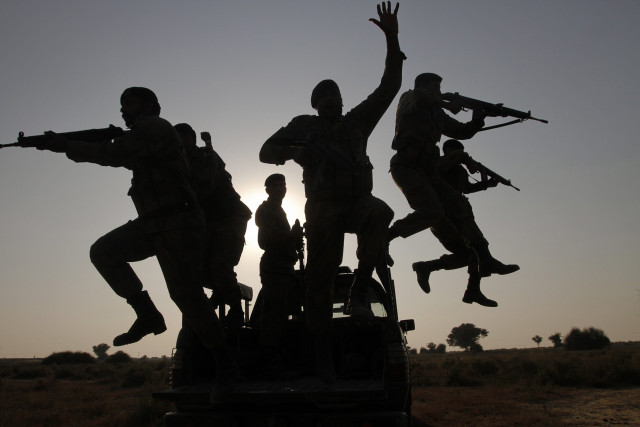Analysis: Waziristan finally off US agenda?
The US now believes that the Afghan Taliban are almost equal stakeholders in the reconciliation process.

Leading commentators and analysts insisted that this life-threatening assault on the child peace activist had united vast sections of Pakistani society into condemnation of the Taliban. Indeed, an unrealistic and incorrect assumption.
Equally mistaken were those who thought this attack was the ultimate trigger for an overdue military push (against the Haqqani Network and its Pakistani surrogates) in North Waziristan.
US special envoy for Afghanistan and Pakistan Marc Grossman then went on to disappoint all those conspiracy theorists, who believed an operation was inevitable, when he brushed aside a question on whether he was in Islamabad to reiterate American demands on North Waziristan.
“On (the) particular question of a North Waziristan (offensive) or any other question, that is the decision for the Government of Pakistan and solely for the Government of Pakistan,” said Grossman.
Grossman also underscored that the US, Pakistan and Afghanistan were working on new strategies to bring stability in the region through mutual cooperation of working groups, and hoped that Pakistanis and Americans could stand up together and eventually declare the end of al Qaeda in this region.
For all real political reasons, Grossman’s statement seems to signal that the relentless demand for a crackdown on all al Qaeda-affiliated militants, including the Haqqanis is most probably off-the-table – at least for the time being.
In fact, signs for this holdback had begun emerging before Grossman’s arrival. In the run-up to his Islamabad visit, senior US officials of the State Department dropped hints that the Obama administration had, probably, grown wiser after almost a year and a half of a fierce campaign to compel the Pakistani military into North Waziristan.
The US now believes the Taliban and al Qaeda are distinctly separate, and that the Afghan Taliban are almost equal stakeholders in the reconciliation process. And herein lies the catch; if the US is positioning itself to re-energise its contacts with all Afghan opposition factions, how would it then continue blowing hot and cold on Pakistan to go after the Haqqani network? It would have been a contradiction to ask Pakistan to crack down on the Haqqani network, but pursue talks with them within the US-Afghan reconciliation framework.
The latest US repositioning also upstages the hitherto held view – largely resting on the rhetoric resonating out of Washington: an all-out military operation would serve as the ultimate solution for Pakistan’s radicalisation challenge. This, many argued, would be the much-needed strategic rethink.
But – based on the empirical evidence – it is tempting to ask whether a military operation in North Waziristan could be equated to the strategic rethink that Pakistan desperately needs? Strategic rethink implies a severing of the nexus that has existed between the military establishment and some Pakistani and Afghan non-state actors such as Mullah Omar’s Taliban, the Haqqani network and Lashkar-e-Taiba.
Militants presumably draw their strength from this nexus and hence there is a need to break it. But whether an all-out campaign in North Waziristan would symbolise the end of this relationship between state and non-state actors is a highly questionable presumption because, while the strategic rethink (divorcing all non-state actors for good and thereby squeezing their socio-political support dry) is a must for the Pakistani society to face off religious radicalisation, an operation in North Waziristan may only result in more chaos and bloodshed in mainland Pakistan.
The staring challenge for Pakistan – even if American demands on North Waziristan are over – is the ability and willingness of the civil and military leadership to take tough strategic decisions, rather than wait for a miracle to happen. Pakistan’s survival lies in containing and neutralising a creeping militant ideology that largely flows from groups nestled in North Waziristan.
Published in The Express Tribune, October 22nd, 2012.



















COMMENTS
Comments are moderated and generally will be posted if they are on-topic and not abusive.
For more information, please see our Comments FAQ